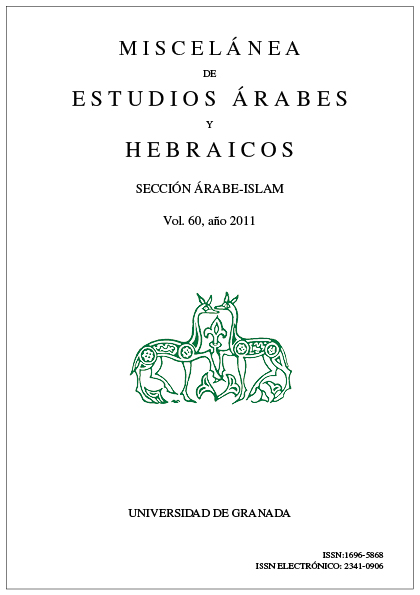The poetics texts of Ibn al-Khatib and quranic texts in the salón de Comares (the qubba of sultan Yusuf I)
Keywords:
Nasrid art, Al-Khatib, Ibn, Poetry, Epigraphy, QuranAbstract
The Salón de Comares was the seat of the throne of the Nasrids. In 1354 Ibn al-Khatīb calls it the Qubba of sultan Yūsuf I. In the intrados of the entrance arch there are two good poems by this vizier that describe the niches for water. A third poem, adorning the central N. alcove, describes the place where the throne was placed. This poem can be attributed to Ibn al-Khatīb due to the similarity of its calligraphy, floral background decoration and type of literary imagery. The sura 113 “The Dawn” is inscribed above its entrance arch to protect the sovereign. The hall is covered with a wooden ceiling that symbolises the seven superimposed heavens created by God, inscribed with the sura 67, “al-Mulk”.Downloads
Downloads
Published
How to Cite
Issue
Section
License
The authors publishing their work in this journal agree to the following terms and conditions:
1. The authors retain the copyright and give the journal the right to be the first publication of the work and also to be licensee under a Creative Commons Attribution License which allows others to share the work, provided the author of the work and the initial publication in this journal are acknowledged.
2. Authors may make additional agreements separately for the non-exclusive distribution of the version of the work published in the journal (for example, putting it in an institutional repository or publishing it in a book), with acknowledgement of its initial publication in this journal.
3. Authors are allowed and encouraged to electronically disseminate (for example, in institutional repositories or on their own web page) the published version of their works (publisher's post-print version) or, if not possible, the author's reviewed and accepted post-print version. This is to facilitate productive exchanges, and allow for earlier and greater citation by third parties of the published works (See The Effect of Open Access).
4. The journal accepts no responsibility for the opinions expressed by the authors.















